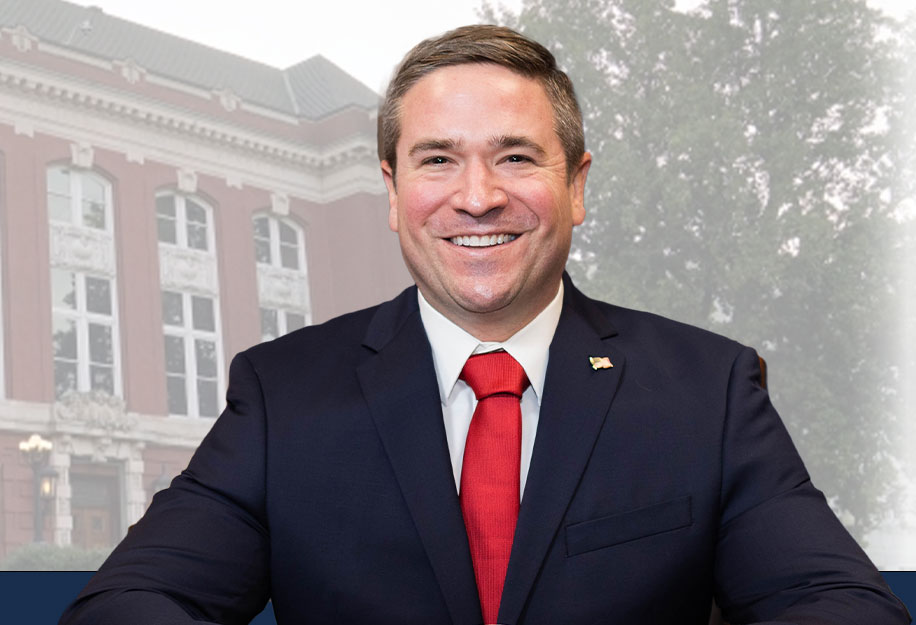JEFFERSON CITY, Mo. – Today, Missouri Attorney General Andrew Bailey filed suit against the State of New York for violating Missourians’ First Amendment right to hear from a presidential candidate in the 2024 presidential election. Bailey’s lawsuit asserts that New York’s illicit prosecution, gag order, and sentencing of President Trump has undermined his ability to campaign for president. This overt meddling in a presidential election sabotages Missourians’ ability to hear from and cast a fully-informed vote for president mere months before the election.
Attorney General Bailey calls on the United States Supreme Court to invoke its original jurisdiction under Article III, Section II of the Constitution to settle the legal battle between the two states. His lawsuit petitions the Court to declare that New York’s restrictions on President Trump’s ability to campaign unlawfully interfere with the presidential election, to remove any gag orders against the former president, and to halt the impending sentencing until after the presidential election.
“Right now, Missouri has a huge problem with New York. Instead of letting presidential candidates campaign on their own merits, radical progressives in New York are trying to rig the 2024 election by waging a direct attack on our democratic process,” said Attorney General Bailey. “I will not sit idly by while Soros-backed prosecutors hold Missouri voters hostage in this presidential election. I am filing suit to ensure every Missourian can exercise their right to hear from and vote for their preferred presidential candidate.”
The lawsuit comes just one month after New York obtained an illicit conviction against President Trump, and alleges three specific violations:
- Count I: Interference with the Presidential Election in other States
- Count II: Violation of Purcell (a federal case prohibiting courts from sowing voter confusion or changing election rules in the months leading up to an election)
- Count III: Violation of the First Amendment rights of voters in other States
General Bailey asserts in the lawsuit, “This lawfare is poisonous to American democracy. The American people ought to be able to participate in a presidential election free from New York’s interference. Any gag order and sentence should be stayed until after the election.”
His lawsuit lays out the timeline of how Manhattan District Attorney Alvin Bragg brought charges against President Trump in order to boost Joe Biden’s campaign and keep Trump out of the White House. Bragg was previously involved in civil litigation against the former President while working for the New York Attorney General’s Office and then campaigned for his current position by promising to use that experience to prosecute him. Additionally, Bragg hired the third highest ranking member from Biden’s Department of Justice, Matthew Colangelo, to lead the prosecution against Biden’s political opponent.
His lawsuit also notes how Judge Merchan violated state judicial ethics rules by donating to the Biden campaign. Further, Judge Merchan refused to recuse himself from the case despite having donated to Trump’s general-election opponent and having a close family member who stood to gain financially from a conviction. He later imposed a gag order on President Trump when he pointed these facts out to the public.
Noting this reprehensible lawfare, General Bailey states in the lawsuit, “Trump’s conviction is very likely to be overturned on appeal. But by then, the constraints New York has sought to impose on Trump to limit his ability to campaign will already have had their full effect. Missouri has a strong, judicially enforceable interest in its citizens and electors being able to hear Trump’s campaigning free from any gag order or other interference imposed by the State of New York.”
Attorney General Bailey filed a motion of preliminary injunction, asking the Supreme Court to immediately halt any further action in the New York case until after the American people have had their say at the ballot box.
The lawsuit and motion for preliminary injunction can be read here.

